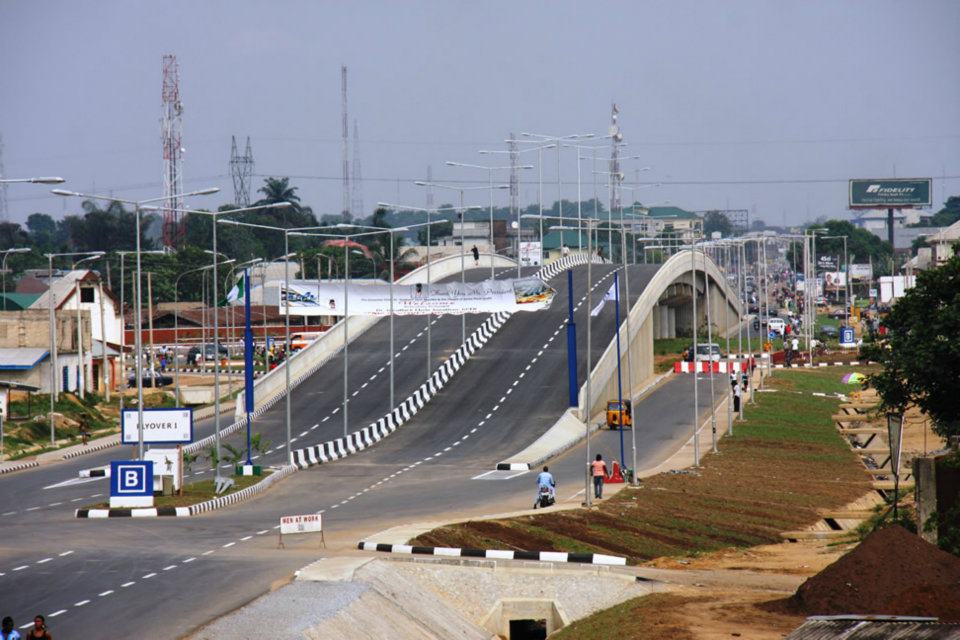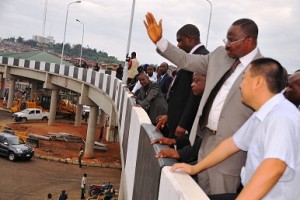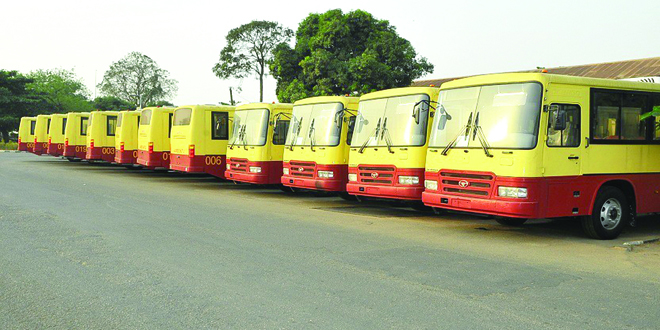
A pot pouri of landmark achievements facilitate the return of Governor Abiola Ajimobi, breaking the second term jinx in Oyo State, Muhammad Nuradeen reports.
Much more than his gap toothed smile and his legendary predilections for comical remarks which stand him out as a riveting character in any gathering, Gov. Abiola Ajimobi could be a straight-faced technocrat.
This is not surprising, having bestridden the corporate world like a colossus in the last couple of decades before his sojourn in the political arena. But Ajimobi is a man of many parts, a product of a diverse academic and professional background cutting across local and foreign institutions that would forever shape his world view in cementing an intrinsic link with the politically sophisticated people of Oyo State.
In 2003, he had voluntarily retired after 26 years of meritorious service in the oil and gas industry. Smart, and quick witted, he had turned to the political space as the easiest means of positively impacting on the lives of his people, and winning a seat in the Senate.
As Senator, he was the Deputy Minority Leader of the Senate, one of the principal offices in the upper legislative chamber.
In an unprecedented move in 2005, he established the first and largest free vocational training centre in Oyo State, offering training in computer engineering, computer operations, telephone engineering, fashion designing , hair dressing as well as tye and dye.
It said that the centre had produced over 15,000 students, most of whom have gained employment in the formal and informal sectors of the Nigerian economy.
No wonder the centre gained local and international recognition, with its registration as a partner and training outfit to the Industrial Training Fund. Based on the positive predisposition of the residents of the state to his initiatives, Ajimobi had contested the 2007 governorship election on the platform of the All Nigeria Peoples Party and like all opposition candidates to the ruling PDP, he had lost.

Presentation of Armoured Special Carriers (APCs) to the State Police to Boost Security.
A man with a never say die spirit, Ajimobi had in April 2011 contested the governorship election on the platform of the Action Congress of Nigeria, emerging victorious and was inaugurated on May 29, 2011.
To avid watchers of the state’s politics and indeed its residents, one of the immediate gains of the Ajimobi administration was the restoration of peace and security which had eluded the state in the last five years. Until the advent of the new government, the state was constantly in a state of war with factions of the National Union of Road Transport Workers perpetually holding the state prostrate.
From provision of security, Ajimobi turned to the arduous task of environmental cleanliness and urban renewal.
For Ibadan, the capital city, that had been ranked in the league of Aba, the Abia capital city, as the filthiest cities, the passion to confront this menace was viewed with cynicism especially given old attitudes which die hard.
Indeed to many analysts, the years of impunity before the advent of the Ajimobi administration had resulted in many residents taking living with filth for granted.

Governor Abiola Ajimobi of Oyo State (right) with one of the 320 tractors purchased.
Across notable spots in Ibadan metropolis for example, mountains of refuse dotted the landscape, to the nonplussed cynicism of concerned environmental officers.
Today, Ibadan and many urban centres in the state had received unquantifiable facelift befitting of its pacesetter status. Iwo road axis, which was an eye sore, has received tremendous transformation to the visitor to the state, having being cleared of miscreants who harass innocent residents.
Also affected by the turn around are areas such as Molete Under bridge, Bode, Ojo Oba, Bere, Oje Elesho, Gate axis as well as Challenge and Ring Road axis.
For a state with a massive civil service population, the governor realised early that attention must be paid to staff welfare and development, especially as the civil service remains the engine room of governance.
Inspite of the challenge in the delay of payment of salaries due to the dwindling revenue from the Federation Account, the Ajmobi administration had embarked on revolutionary measures to change the face of the Oyo State civil service.
The state government has trained more than 13,000 civil servants while no fewer than 12,211 teachers and 1,714 civil servants had been promoted through the Civil Service Commission.

Mokola Flyover
It is worthy to note that the Ajimobi administration broke the stagnation of hundreds of typists in the civil service who had languished on the same spot for between 15 and 20 years by facilitating their career progression.

Ajimobi inspecting the Mokola Flyover
All these is in addition to the launch of the 100 shuttle buses for transportation in the state, 10 of which would offer free shuttle to civil servants and students in the state.
With the ever competing demands in the face of paucity of funds, Ajimobi realised quite early to seek alternate sources of funds apart from the dwindling sums in the Federation Account.
Realising the immense potentials in his agrarian state, the governor turned attention to boosting food production through supporting small holder farmers in addition to creating a conducive atmosphere for private sector participation in the agriculture sector.
In one fell swoop, he bought 320 tractors for 20 local governments in the state. At a 1,500 persons per tractor estimate of a world agricultural body, an estimated 480,000 people would be beneficiaries of this initiative.
In the health sector, more than 36 ambulances were procured in the first two years of Ajimobi administration while more than 60 service staff were trained on Basic Life Support. This is in addition to 40 OYES staff that were recruited into the Ambulance Service.

Ajimobi Mass Transit Buses
A Control Room was also established in addition to a toll free emergency line. The government also established an health insurance scheme, with more than N20 million sunk into the initiative to expand coverage in the first two years of the administration.
To check the scourge of malaria, more than 2.7 million insecticide treated nets were distributed with the average household getting two nets.
With his international contacts, Ajimobi was able to attract free health missions to the state in which more than 500,000 residents were attended to including cases requiring surgery.
Three mobile containers were procured for this programme in order to take the initiative to remote areas of the state.
A total sum of N280million was spent in the first two years of his administration to procure essential drugs for distribution to health facilities. To confront frontally the twin ravaging diseases of tuberculosis and leprosy, the Ajimobi administration established the first drug resistant tuberculosis treatment centre at Government Chest Hospital in the country.
If the government had attained such sectoral landmarks which had impacted on the lives of the ordinary people, its development and deployment of the Oyo State Land Automation Project was to further consolidate this. Today for example, it takes less than 60 days to process a Certificate of Occupancy given the faster land document collection cycle.
Unsurprisingly, investors such as estate developers are trooping to the state to latch on to the favourable climate created to conduct business. This is why the return of Ajimobi following his gallant outing in the 2015 governorship election was a victory long foretold.
At the beginning of his tenure, Ajimoibi had said that his economic agenda would focus on recreating the state’s economy with a view to engendering the emergence of a new economy, empower the people for sustainable wealth creation and develop the capacity of all economic agents.
Today, the climate for a sustainable economy had been created in the state while to all intents and purposes, all citizens can now rise to achieve the best of their potentials. This invariably accounted for the return of Atunluse and the breaking of the second term jinx. The people have certainly spoken!







